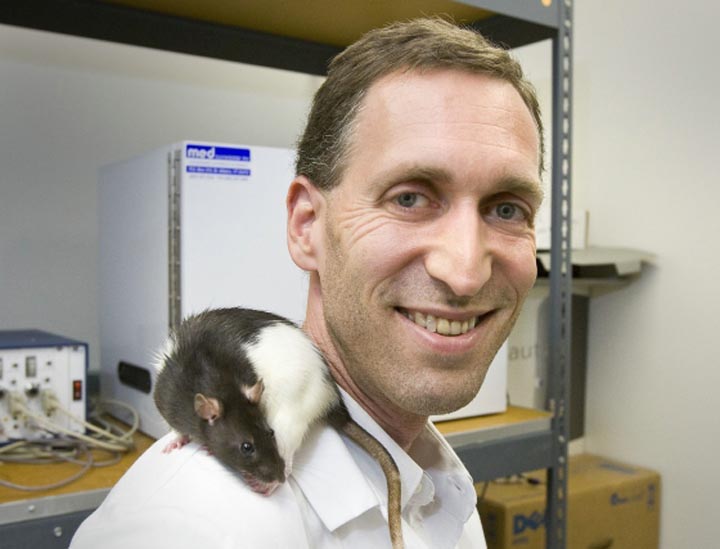TORONTO — After eating a cheeseburger and fries, do you feel like curling up on the couch and taking a nap? Scientists suggest that mice operate the same way, too.

When it comes to obesity, what factors are to blame for the initial onset — is it an unhealthy diet or lack of exercise? It’s an age-old question that researchers think they’ve answered: being overweight makes people tired and sedentary, it’s not the other way around — at least that’s what California researchers who fed a group of mice a processed food diet believe.
They suggest their findings point to lack of motivation after heavy, unhealthy eating.
In the study, a team of UCLA doctors fed 32 female rats on two separate diets for six months: one group was fed a healthy unprocessed meal of ground corn and fish meal, while the other grazed on highly processed, sugary food as a proxy for junk food.
If these rats wore pants, the group on the processed food diet wouldn’t be up to zip up after just three months. There was a “significant difference” in their weight and fat mass.
READ MORE: How do lab eats eat Oreos? U.S. study suggests the cookies are as addictive as cocaine
When the rats were tasked with pressing a lever to receive food or water, the group on the junk food diet was “impaired,” taking lots of breaks, and longer ones than their leaner counterparts. In a 30-minute session, the heavier rats’ breaks were nearly twice as long.
- ‘Shock and disbelief’ after Manitoba school trustee’s Indigenous comments
- Canadian man dies during Texas Ironman event. His widow wants answers as to why
- Several baby products have been recalled by Health Canada. Here’s the list
- ‘Sciatica was gone’: hospital performs robot-assisted spinal surgery in Canadian first
“Overweight people often get stigmatized as lazy and lacking discipline. We interpret our results as suggesting that the idea commonly portrayed in the media that people become fat because they are lazy is wrong…diet-induced obesity is cause, rather than an effect, of laziness,” lead author Dr. Aaron Blaisdell said in a statement.
“Either the highly processed diet causes fatigue or the diet causes obesity, which causes fatigue,” he said.
Ultimately, one diet led the rats to obesity and the other didn’t. What’s more frightening is what happened when the scientists swapped the rats’ diets.
READ MORE: Self-control is within our reach, even when we’re tired, scientists say
At the six-month mark, the overweight rats were given a nutritious diet and the lean rats were given the sugary treats.
But their habits stayed the same: the overweight rats maintained their weight and their laziness while at the lever. The lean rats stayed svelte, for the most part, while their motivation stayed the same.
Blaisdell says these findings may explain why some people get away with the occasional binge, while a pattern of unhealthy eating leads to obesity.
“There’s no quick fix,” he said.
The study may have been conducted on rats, but Blaisdell said his findings don’t veer far from humans’ diets. Rodent or human, junk food makes us hungrier, he said.
“We are living in an environment with sedentary lifestyles, poor quality diet and highly processed foods that is very different from the one we are adapted to through human evolution,” the life scientist said.
READ MORE: How much sugar is in Nutella? Canadian doctor decodes what’s in the hazelnut spread
The rats in his study who ate the unhealthy meals grew “large numbers” of tumours throughout their bodies in their lifetime. Blaisdell isn’t surprised by rising obesity rates, and the chronic conditions such as diabetes and high blood pressure that come with being overweight, that are being documented around the world.
READ MORE: Sweeteners create cocaine-like addictions, says Canadian study
The 45-year-old doctor changed his diet more than five years ago, according to UCLA. Now, he avoids processed food, bread, pasta, grains and food with added sugar. Instead, he eats meat, seafood, eggs, vegetables and fruit — “what our ancestors ate.”
And it’s working on Blaisdell. He says he feels better mentally and physically. “I’m full of energy throughout the day and my thoughts are clear and focused,” he said.
His team’s full findings were published online Monday night and will appear in the print edition of the journal Physiology and Behavior on April 10.
carmen.chai@globalnews.ca
Follow @Carmen_Chai



Comments